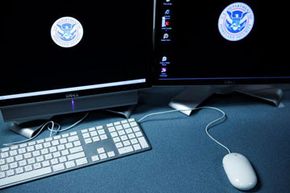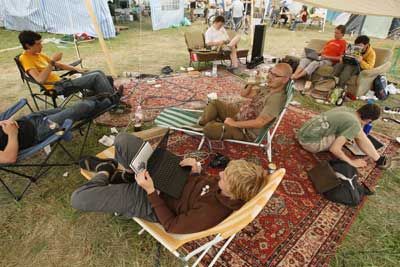In 2009, U.S. Defense Secretary Robert Gates declared that the U.S. "is under cyber-attack virtually all the time, every day" [source: Farrell]. He wasn't joking. That year, computer spies gained access to files about the Pentagon's $300 billion Joint Strike Fighter project, intruders breached the Air Force's air-traffic-control system, Chinese hackers penetrated computers at Google, and Russian cyber-thieves stole tens of millions of dollars from Citibank.
To address such threats, President Barack Obama decided soon after taking office to create a new White House position to oversee the safety of the nation's computers and networks. In February 2009, he selected Melissa Hathaway, the acting senior director for cyberspace for the National Security and Homeland Security Councils, to conduct a 60-day review of the government's computer security policies. Her report recommended a permanent position in charge of cybersecurity, and she served as the acting cybersecurity czar until she resigned in August of that year. The hunt for a permanent czar took until December, when Obama appointed Howard A. Schmidt, who had more than 40 years of experience in both private and government computer security.
Advertisement
"Czar" is not Schmidt's official title. He's actually known as the cybersecurity coordinator with the rank of special assistant to the president. The term "czar" has been used informally at least as far back as the Franklin D. Roosevelt administration in the 1930s to indicate that an official has authority in an area of government [source: Zimmer]. It usually means the president considers the issue to be of national importance.
In fact, because computer security has been a national priority for years, Schmidt actually isn't the first to be known as "cybersecurity czar." The term was applied to Richard A. Clarke beginning in 2001 [source: Anderson]. He was officially the special adviser to the president on computer security. The term wasn't used after Clarke left in 2003, but it was revived a few years later to refer to Rod Beckstrom, who became the director of the National Cyber Security Center, which was formed in 2008 within the Department of Homeland Security [source: Stokes].
As Obama's cybersecurity czar, Schmidt is part of the White House staff and reports to the deputy national security adviser. Though he's part of the White House national security team, Schmidt also consults with the president's top economic advisers and has direct access to the president [source: Nakashima]. His appointment wasn't mandated by Congress and didn't require Senate confirmation. The president may dismiss or replace him at any time.
As the person charged with safeguarding the nation's computers, the cybersecurity czar is responsible for working with numerous federal agencies and private companies. But some critics have questioned how much responsibility he really has. Find out why in the next section.
Advertisement



